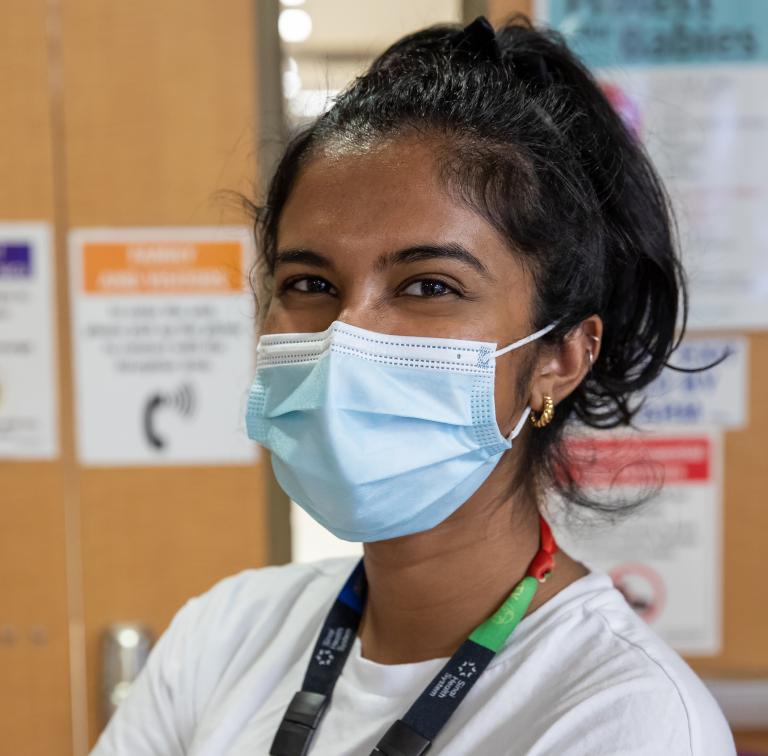Rehabilitation at Mount Sinai
The Rehabilitation team at Mount Sinai is group of highly trained professionals who work closely with patients. They help to restore and improve physical and mental abilities after surgery, medical treatment or over the course of an illness.
Rehabilitation professionals focus on improving patients’ independence, mobility, function, speech and day-to-day activities. Our team provides care and therapy that is designed to meet your unique needs and goals.
Your care team may include physiotherapists, occupational therapists, speech language pathologists and physical and occupational therapy assistants.
Physiotherapists
Our physiotherapists (PT) are regulated health professionals who care for patients in different areas of the hospital. They help patients improve their mobility, activity tolerance and strength after a surgery or illness.
PTs work with you to develop a treatment plan with specific movements and exercises. They use specialized equipment and walking aids to help you progress safely. They also give advice on how to keep improving after leaving the hospital.
PTs do important work with patients in the Intensive Care Unit (ICU). A lack of movement and being on a ventilator can cause muscle weakness and other problems. PTs help prevent some of these issues by:
- Positioning patients
- Supporting early mobility
- Providing supplemental oxygen support
- Using techniques to clear the airway, such as suctioning and mechanical chest physiotherapy
PTs also work across many other areas of the hospital. This includes the Emergency Department, the Rapid Access Clinic, General Internal Medicine, Orthopaedics, the Neonatal Intensive Care Unit (NICU) and the Neonatal Follow-up Clinic.
Occupational therapists
Occupational therapists (OTs) are regulated health professionals who help patients regain independence. They provide support for activities of daily living such as eating, bathing, leisure activities and household chores. OTs also work in the NICU to support infant feeding and development.
OTs work with you to develop a treatment plan that will encourage independence and help you reach your goals. OTs may suggest specific changes to your home or work environment to support your needs.
OTs work in many areas of the hospital. These include the Emergency Department, Psychiatry, the Wasser Pain Management Clinic and the Neonatal Follow-up Clinic.
Speech language pathologists
Speech language pathologists (SLPs ) are regulated health professionals who assess and manage swallowing and communication difficulties that occur after an illness, treatment or surgery. These issues may be temporary or long-term and can have many different causes.
Our SLPs complete swallowing assessments at your bedside. In some cases, they may use X-ray imaging to do a test called a videofluoroscopic swallow study. These assessments help SLPs recommend safe food textures and how to safely take medication.
SLPs also help patients who have communication challenges by assessing their challenges and providing aids and strategies. In addition to helping patients directly, SLPs help families and care team members. SLPs teach them the best way to have clear and meaningful interactions with patients.
Physiotherapy and occupational therapy assistants
Physiotherapy assistants (PTA) and occupational therapy assistants (OTA) work under the supervision of a physiotherapist or occupational therapist. They help you follow the treatment plan designed for you by a PT or OT.
How to access our services
Speak with your health-care team to find out if a rehabilitation professional should be part of your treatment plan.









